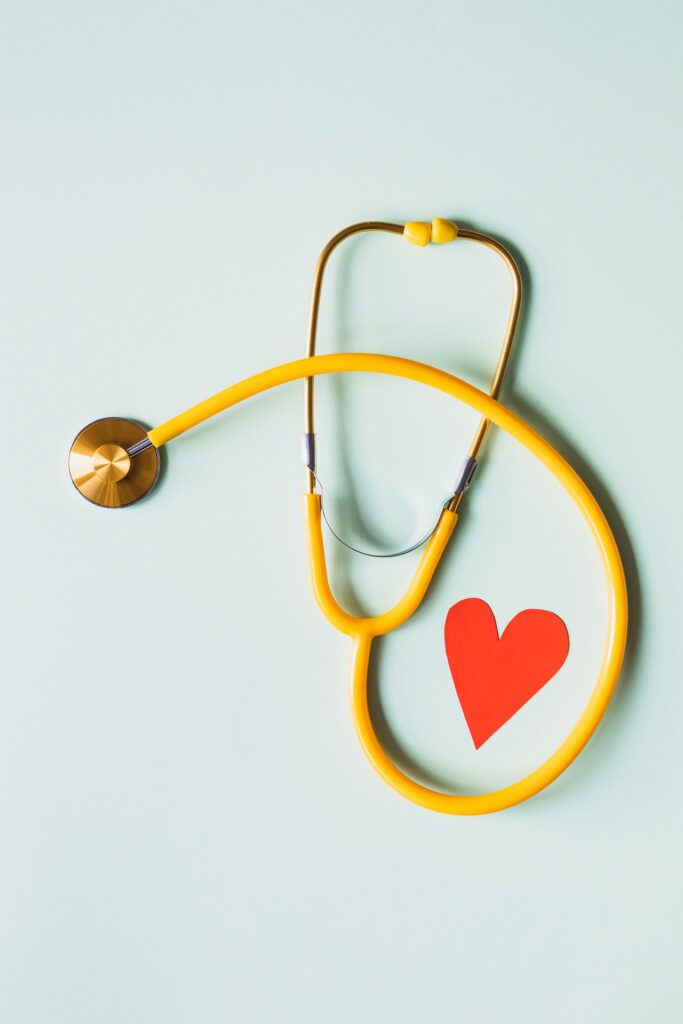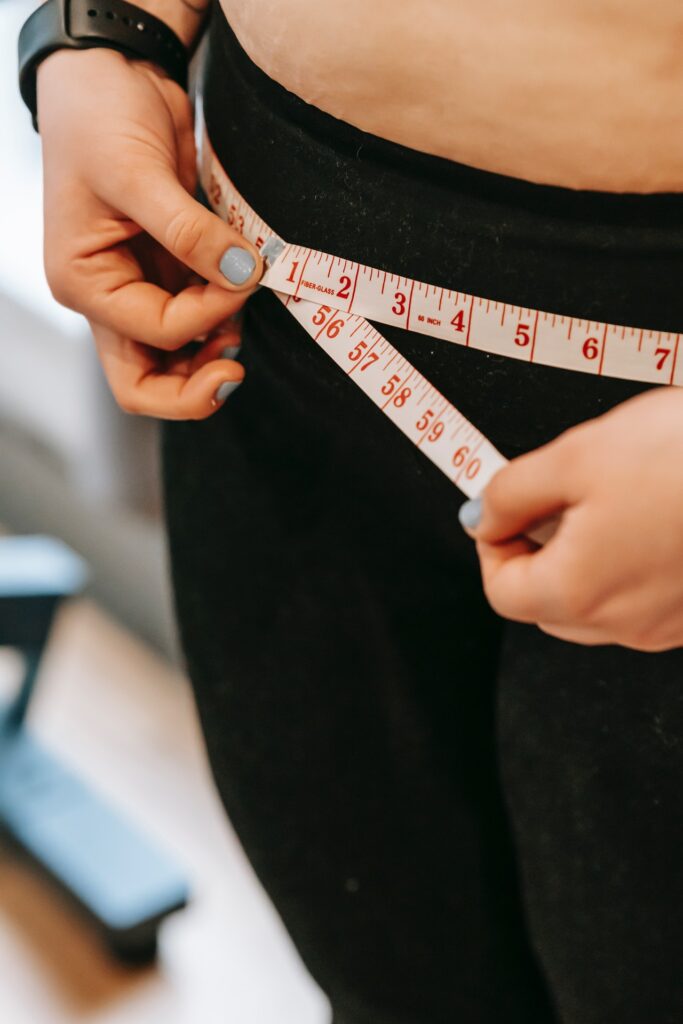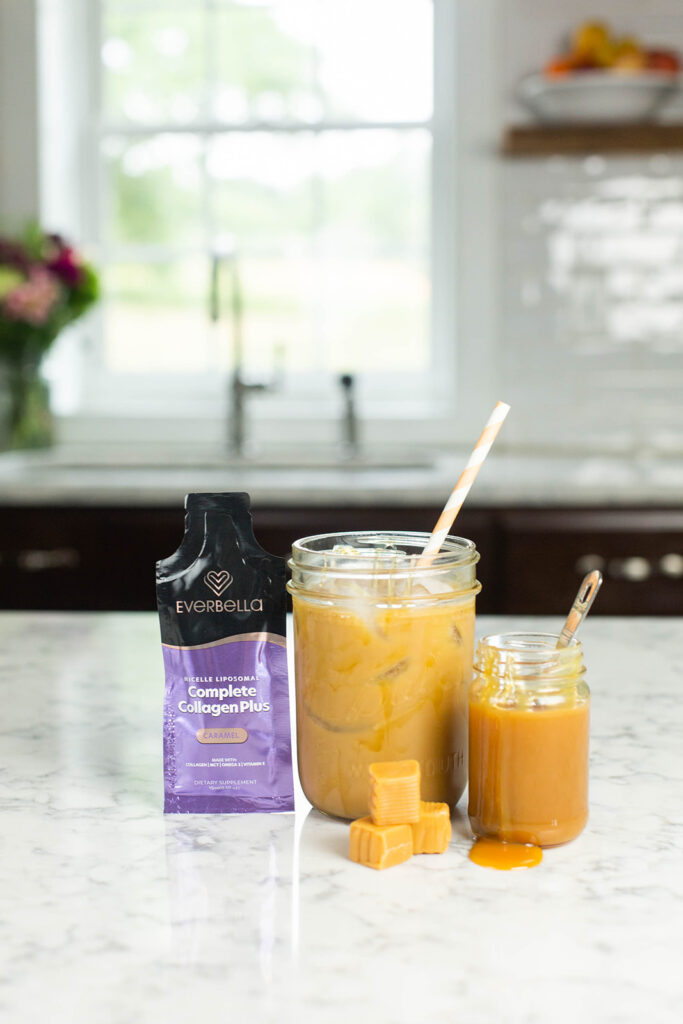Tag: healthy life
The Power of Exercise
I know the saying is, “An apple a day keeps the doctor away…” BUT, can we also adapt the saying to, “10,000 steps a day keeps the doctor away…”?
I’m mostly joking… But in all seriousness, daily movement is an incredibly powerful component of our health! Especially for us ladies (keep reading, you’ll see what I mean!). It’s no secret that maintaining a physically active lifestyle has its benefits, as well as its challenges. But today, I want to outline three POWERFUL benefits of movement that will have you jumping out of your chair, and into new, healthy routines!
Cardiovascular Health & Exercise
Just like we have to exercise our muscles to keep them healthy and strong, we have to exercise our cardiovascular system to keep our heart working as it should! The cardiovascular system is responsible for keeping our heart pumping, and circulating blood to all the tissues in our body. When cardiovascular health suffers, it can put you at risk for high blood pressure, coronary artery disease, heart attack, stroke, and more.

Exercise is one key component of keeping the cardiovascular system strong and healthy. In fact, exercise has been shown to significantly help with high blood pressure, improving unhealthy cholesterol levels, improving the body’s ability to respond to insulin, and improving weight status. [1] All of these factors – unhealthy blood pressure, cholesterol, weight, and poor insulin response – can play a role in the development of cardiovascular diseases.
Studies show that it’s important to aim for getting 30 minutes of moderate physical activity every day. Additionally, it doesn’t quite end there. In addition to getting 30 minutes of exercise a day, it’s important to limit the time you spend sedentary! While you don’t need to be breaking a sweat all day, here are some ways that you can reduce the amount of sedentary time you spend on a daily basis:
- Take the stairs over the elevator/escalator
- Park farther away in the parking lot
- Take a 2 minute break every hour at work to stand up and move around
- Stretch while watching television at the end of the day
- Invest in a standing desk or medicine ball for your workspace
- Go for a walk after dinner
While exercise is important for our physical health, it also can have a significant impact on our energy levels and mood!
Energy & Mood
Don’t you just feel so good after a workout? I know that I do! It’s no coincidence that many of us feel better after we’ve worked out. Physical activity can have a pretty big impact on mental health and energy levels!

When we exercise, our body releases hormones called endorphins. Endorphins can produce a positive, happy feeling (sometimes known as the ‘runner’s high’) which is part of the reason why we may feel really good after a workout. Exercise can also decrease hormones that are attributed to stress, such as adrenaline and cortisol. [2] So, after one of those days, exercise might be exactly what you need to take a little bit of the edge away.
It’s also important to note that there have been several studies that have shown an important relationship between exercise and mental health, including depression. In a large study completed in 2019, researchers found that odds of depression were reduced by 26% with major increases in physical activity. [3] In another study, it was shown that just a single session of physical activity could be helpful in reducing both anxiety and depression. [4]
Additionally, exercise can help improve energy levels, in a couple different ways. Let’s break it down:
- Exercise can stimulate your body to produce more mitochondria, the cellular organ that produces energy. This means that more mitochondria may result in more energy for you to use on a daily basis! [5]
- Exercise helps improve your cardiovascular circulation. Because the goal of our cardiovascular system is to circulate oxygen to our cells, better circulation means that we are able to do this more efficiently, which we may experience as feeling more energetic! [5]
- Exercise can help us sleep better. Better sleep = a more rested and more energetic you! [5]
For a little boost in mood and energy, exercise might be exactly what you need. Let’s now explore another important benefit of exercise – bone health!
Bone Health
Maintaining healthy bone mass is essential. While we don’t usually experience many issues with bones until later in life, we lay the groundwork for our skeletal system much earlier! Women and men reach peak bone mass around the age of 18 and 20, respectively. [3] We may still continue to build bone density until the late 20s and early 30s, but after then, it tends to level off.

That is, until we get a bit older. For men, bone density may not be an issue until their late 60s or early 70s. However, for women, bone density can be significantly impacted once menopause hits. While this is a natural part of aging, it’s important to take measures to prevent accelerated bone loss and osteoporosis (weakened, porous bones). The good news is that there are plenty of ways to optimize your bone density, and to delay or prevent serious bone loss. Can you guess what I’m going to say next?
If you guessed that I was going to say, “Movement for strong bones!” – you’d be correct! Regular exercise is a great way to build and maintain bone density. Specifically, you want to target weight-bearing movements, like running, jogging, jumping, and stepping. Resistance training, or training to help build muscle, can also be effective in promoting healthy bones. While other exercises, like swimming or biking, have other great health benefits, these do not help with bone density quite as much.
Of course, it also doesn’t hurt to make sure you have the nutrition you need to keep your bones healthy. Remember, collagen is an essential part of the structure that makes up our body, like our skin, joints, and yes, bones. Try Complete Collagen+ risk free for 180 days with our money back guarantee!
Citations
- Myers, Jonathan. “Exercise and Cardiovascular Health.” Circulation, vol. 107, no. 1, 2003, https://doi.org/10.1161/01.cir.0000048890.59383.8d.
- “Exercising to Relax – Harvard Health Publishing.” Harvard Health, 7 July 2020, https://www.health.harvard.edu/staying-healthy/exercising-to-relax.
- “More Evidence That Exercise Can Boost Mood.” Harvard Health, 1 May 2019, https://www.health.harvard.edu/mind-and-mood/more-evidence-that-exercise-can-boost-mood.
- Guszkowska, Monika. “Wpływ ćwiczeń fizycznych na poziom leku i depresji oraz stany nastroju” [Effects of exercise on anxiety, depression and mood]. Psychiatria polska vol. 38,4 (2004): 611-20.
- Toni Golen, MD, and MD Hope Ricciotti. “Does Exercise Really Boost Energy Levels?” Harvard Health, 1 July 2021, https://www.health.harvard.edu/exercise-and-fitness/does-exercise-really-boost-energy-levels.
- “Osteoporosis: Peak Bone Mass in Women.” National Institutes of Health, U.S. Department of Health and Human Services, https://www.bones.nih.gov/health-info/bone/osteoporosis/bone-mass.
Can Medium Chain Triglycerides be Used for Weight Loss?
When it comes to nutrition, new trends pop up every year, and tons of new information along with them. How are you supposed to weed through all the information about new health trends, as quickly as they come (and sometimes go)?
Medium chain triglycerides, also commonly known as MCT, are all the rage right now. But what are they, and why do people think that they’re important for health? One reason is because there has been some indication that MCTs may play a role in weight and fat loss. Before we dive into this health trend, let’s first take a closer look at MCTs. What are they? How do they act in the body?
Medium Chain Triglycerides
Essentially, medium chain triglycerides are a type of fat found in palm, coconut oil, and some dairy sources. These sources of MCTs are processed through a technique called fractionation. Fractionation means that MCT oil is separated from the rest of the plant to use as an individual dietary supplement.

They’re a bit different from the majority of fat we typically eat in our diet, long chain triglycerides (LCTs). LCTs have long carbon chains (greater than 12 carbon molecules in a row), and need to be digested and broken down before they can be absorbed and transported throughout the body. However, MCTs are short enough (between six and 12 carbon molecules long) to be directly absorbed. They are quickly transported to the liver to be used for immediate energy.
Because MCTs are absorbed a bit differently, they have a higher thermal effect in the body compared to LCTs. Basically this means that the body works harder to process this nutrient, and burns more calories in order to do so. As a result, MCTs are slightly lower in calories, about 10-15% lower than other fat sources.
MCT Uses
MCT oil has some pretty specific uses. Because it doesn’t need to travel through the digestive system for breakdown and absorption, it is often used to supply calories and essential fatty acids to those with absorption issues. This may include individuals who have inflammatory bowel disease, like Crohn’s or Ulcerative Colitis, or who have shortened digestive tracts. [1] It also may be beneficial for those at risk or living with cardiovascular conditions, as MCT has been shown to decrease LDL cholesterol (the bad cholesterol) and increase HDL cholesterol (the good cholesterol). [2]
It has been thought that because MCTs are metabolized differently than LCTs, they may affect our health a little differently. Aside from benefitting certain health conditions, the use of MCT is expanding drastically. Let’s take a look at one specific use of MCT that is being explored – weight loss.
MCT and Weight Management
One reason why MCT oil has become so popular is due to its suspected role in weight management. Sounds great, right? Let’s highlight the available research to see if this is a MCT fact or fiction.

The relationship between MCT and weight is largely due, in part, to the way that MCT affects our appetite. Some small studies have shown that intake of MCTs may play a role in appetite suppression, meaning that they can help us stay more full, longer. This has been shown to be true in a few studies where a few of the hormones involved in appetite suppression, leptin and peptide YY, were elevated after intake of MCT oil. Additionally, individuals who consumed MCT oil reported more satisfaction and feelings of fullness three hours after a meal compared to those without MCT oil. [4-5]
There have also been studies to observe that MCT oil was more effective than olive oil in participants who were attempting to lose weight. Not only were those taking MCT oil more successful in their weight loss goals, but they also had greater fat loss. [6] This was also observed in another study, in which men who supplemented MCT oil experienced greater fat loss compared to men who supplemented with LCTs. However, fat loss occurred more significantly in those who began with a lower body weight compared to those who started the study with a higher weight. [7] It’s important to note that there are many other lifestyle factors associated with appetite and weight loss that may have also played a role in the outcomes of these studies.
So, Should You Supplement?
So, should you take MCT for weight loss? While the current research on MCT is interesting, it’s certainly clear that MCT isn’t a magic solution for weight loss. Other factors, like diet and exercise, must be considered. However, there is evidence to support that supplementing with MCT could add some small, additional benefit to weight loss attempts and appetite control. On top of all that, MCT is an easily absorbed source of essential nutrients, and also appears to have an impact on improving cholesterol levels.
Luckily, our Complete Collagen+ is formulated with MCTs, along with Algal DHA (Omega 3 Fatty Acids), and Vitamin E! Give it a try, risk free, with our 180-day money-back guarantee!
Citations
- Cabré, Eduard, and Eugeni Domènech. “Impact of environmental and dietary factors on the course of inflammatory bowel disease.” World journal of gastroenterology vol. 18,29 (2012): 3814-22. doi:10.3748/wjg.v18.i29.3814
- St-Onge, Marie-Pierre et al. “Consumption of a functional oil rich in phytosterols and medium-chain triglyceride oil improves plasma lipid profiles in men.” The Journal of nutrition vol. 133,6 (2003): 1815-20. doi:10.1093/jn/133.6.1815
- Cardoso, Diuli A et al. “A COCONUT EXTRA VIRGIN OIL-RICH DIET INCREASES HDL CHOLESTEROL AND DECREASES WAIST CIRCUMFERENCE AND BODY MASS IN CORONARY ARTERY DISEASE PATIENTS.” Nutricion hospitalaria vol. 32,5 2144-52. 1 Nov. 2015, doi:10.3305/nh.2015.32.5.9642
- R. Kinsella, T. Maher, M.E. Clegg. Coconut oil has less satiating properties than medium chain triglyceride oil. Physiology & Behavior, Volume 179, 2017. Pages 422-426, ISSN 0031-9384
- St-Onge MP, Mayrsohn B, O’Keeffe M, Kissileff HR, Choudhury AR, Laferrère B. Impact of medium and long chain triglycerides consumption on appetite and food intake in overweight men. Eur J Clin Nutr. 2014;68(10):1134-1140. doi:10.1038/ejcn.2014.145
- St-Onge, Marie-Pierre, and Aubrey Bosarge. “Weight-loss diet that includes consumption of medium-chain triacylglycerol oil leads to a greater rate of weight and fat mass loss than does olive oil.” The American journal of clinical nutrition vol. 87,3 (2008): 621-6. doi:10.1093/ajcn/87.3.621
- St-Onge, M-P, and P J H Jones. “Greater rise in fat oxidation with medium-chain triglyceride consumption relative to long-chain triglyceride is associated with lower initial body weight and greater loss of subcutaneous adipose tissue.” International journal of obesity and related metabolic disorders : journal of the International Association for the Study of Obesity vol. 27,12 (2003): 1565-71. doi:10.1038/sj.ijo.0802467
7 Tips to Live a Long & Healthy Life
We all want to live a long and healthy life. However, some everyday bad habits can get in the way…
Just know that you’re not totally to blame (and you’re not alone)!
Life is busy and we don’t always feel like we have the time to take care of ourselves the way we should. But, when we neglect ourselves, we neglect our overall well being – Which can do a number on our bodies, both mentally and physically.
Being healthy doesn’t just happen overnight. We do have to put in some leg work to be healthy, especially if we want a long and healthy life ahead of us. And it goes beyond just eating right and exercising. It also means taking care of our mind and body as a whole.
I know I want a long life ahead of me! Life truly is a blessing and has so much to offer.
I personally follow these everyday 7 tips to guide me on the path to a long and healthy life. Take a moment to check them out.
7 Tips for a Long and Healthy Life
1. Quit Smoking
One of the worst things we can do to our body is smoke. It can come with some very negative effects like asthma, lung and heart disease, cancer and more.
And of course, quitting is easier said than done. Cigarette smoking is actually one of the leading causes of preventable disease and death in the United States. Cigarette smoking kills more than 480,000 Americans each year.
If you want to quit smoking and you do need some help, speak with your doctor or naturopath to see what options are available to help you. It doesn’t have to be ‘cold turkey’ – reach out to your health provider if you need assistance.
2. Eat Well
Eating a well balanced diet is essential to a healthy life. What we put into our bodies is what fuels our existence. We need to make sure we are giving our body what it needs on a regular basis so it can function at its best. Sweets and other sugary foods should be limited as well as processed foods like potato chips and french fries. While they taste great, they can do a number on our bodies (and they can be highly addictive).
A balanced diet includes foods from five groups and each category fulfills your nutritional needs.
The 5 Essential Food Groups:
- Vegetables – There are five subgroups of vegetables that are rich in nutritional value, including: leafy greens (kale, lettuce, cabbage, etc), red or orange vegetables (carrots, tomatoes, beets, and radishes), starchy vegetables (potatoes and sweet potatoes), legumes (beans, peas, and edamame) and other vegetables (such as eggplant or zucchini). The USDA recommends that we eat vegetables from each of the five subgroups every week. More food guidelines can be found here!
- Fruits – Eating whole fruits is vital (think bananas, apples, berries, melons, etc). A bowl of fresh fruit a day is recommended.
- Grains – Similar to veggies, grains have subgroups as well: whole grains and refined grains. At least half of the grains that a person eats daily should be whole grains, such as quinoa, oats and rice. However, I personally eat primarily whole grains as they are less processed and have more nutritional value. Refined grains are found in things like breads, cereals, crackers, desserts and pastries (which usually have lots of hidden sugars and other processed ingredients).
- Protein – Some great protein sources include beef, poultry, pork, and fish. Now, if you are a vegetarian or vegan – fear not! There are some other great sources of protein such as Tofu and a variety of legumes.
- Dairy – The USDA recommends consuming low-fat versions whenever possible. Some low fat dairy and soy includes: cottage cheese or ricotta, low fat milk and yogurt. Now this can be troublesome for those that are lactose intolerant… but there are alternatives available such as low-lactose or lactose-free products. Or choose soy-based sources of calcium and other nutrients.
Ensuring we are eating from these 5 essential food groups daily will give our bodies the nutrition our body needs and craves.
3. Get Restful Sleep
Sleep is another crucial part of a healthy life. Adults typically need 7 to 8 hours of sleep a night to feel rested and allow our body time to recharge. Although we “need” 7 to 8 hours sleep, most of us are lucky to get between 5 to 6 hours.
Why? Because life is stressful, busy, and chaotic at times. It can be hard for us to shut off our mind to get the sleep we need.
Tips for Restful Sleep:
- Turn off all electronics – When I go to bed, I turn off my TV, phone, laptop – anything and everything I can deem a distraction and an emitted of blue light (which can impact your circadian rhythms).
- Listen to calming sounds before bed – When I lay down in bed to unwind, I listen to crashing waves on the beach. It helps soothe my mind and puts me right to sleep!
- Avoid drinking my coffee after 5pm – Ideally anything with caffeine should be avoided at least 5-6 hours before bed.
- Sleep in a very dark room – Any form of light coming in disrupts my sleep. If you are the same way, I would recommend room darkening curtains and try to avoid turning on a light for any nighttime bathroom breaks.
When I feel like I had a good night’s rest, I feel like a whole new person the next day! I am full of energy and my mood is always so much better.
4. Hydrate
Water is key to so much in life. Staying hydrated and drinking around 8 glasses of water a day can go a long way.
When we sweat, we need water to replenish the lost fluid from sweat or we can feel fatigued and drained. We also need water for a healthy digestive system as it helps digest our food for us and get rid of waste.
Plus, it can help us stay full which can be beneficial if you are looking to shed a few extra pounds. Drinking water not only keeps us hydrated and feeds our cells, but drinking a glass of water before a meal can help you feel full faster (so you actually end up eating less).
5. Avoid Negative People
Negativity can be toxic. And when we are exposed to a lot of negativity, it can affect our overall mood and mindset. Try to surround yourself with positivity and positive people. Someone once told me a “bad mood can be contagious.” I find this to be very true! If I am with someone who is always in a bad mood, I start to feel the same way.
When we have negative emotions it can actually affect our bodies. Negative attitudes and feelings can create chronic stress, which upsets the body’s hormone balance, depletes the brain chemicals required for happiness, and damages the immune system.
Doctors have actually found that people with high levels of negativity are more likely to suffer from degenerative brain diseases, cardiovascular problems, digestive issues, and recover from illnesses much slower than those with a positive mindset.
So being surrounded by positivity is actually much healthier for you! Life is short – We should embrace and love every moment of it!
6. Prioritize Self Care
You are the most important part of your life. You make your life what it is. Taking care of yourself by eating well and exercising is one thing… But taking care of your MIND is just as important.
Make sure you take time for yourself and do things you love. Try to find one thing each day you love doing and do it! Whether it be a peaceful walk with your dog, 30 minutes of yoga, a hot bath with your favorite candles – whatever your heart desires – do it for you!
A happy mind is a happy body. We need to feel inner peace with ourselves and our lives. And that starts with you. Don’t over work yourself and make sure to take time for yourself each day. We all need our alone time to regain ourselves and to have some peace. If you can’t do it daily, try to set a self care time at least 3-4 days a week if you can!
Self-care encourages you to maintain a healthy relationship with yourself so that you can transmit your good feelings to others. You cannot give to others what you don’t have yourself. So take care of you!
7. Supplement
No matter how hard we try, sometimes we need a little helping hand in the way of nutrition. If you find that your body just isn’t getting the nutrients you need, looking into a supplement may be a good fit for you. Whether it be a multivitamin or something like vitamin B12, adding a supplement to your repertoire is a good idea.
My B12 levels can get a little low sometimes which leads to things like fatigue, brain fog, and mood swings. So, I take B12 daily to ensure my body is getting the daily intake it needs. In fact, the one I love most is PuraTHRIVE’s micelle liposomal B12 which has superb absorption (compared to capsules) and tastes delicious.
I also use collagen, which is great for both my inner and outer body. Since I live on a farm, I have a HUGE vegetable… And that means being crouched down a lot during the day and using muscles I sometimes forget I have (I am sure you can relate after a day of yard work).
Collagen is a lifesaver for me! I use it daily to help my joints feel their best and to avoid discomfort after working in the garden or daily exercise. Plus, it also does wonders for my hair, skin, and nails (check out my story here on how collagen changed my life). It is one of the first things I grab in the morning when I wake up. Plus it tastes like caramel which makes taking it that much easier when it tastes SO GOOD!
Find out more about Collagen and how it can benefit you here!

There you have it friends, some easy ways to get you on a path to a long and healthy life.
Stay healthy and happy!
Resources:
https://health.gov/sites/default/files/2019-09/2015-2020_Dietary_Guidelines.pdf
https://marquemedical.com/damaging-effects-of-negativity/
https://www.takingcharge.csh.umn.edu/how-do-thoughts-and-emotions-affect-health#:~:text=Poorly%2Dmanaged%20negative%20emotions%20are,and%20damages%20the%20immune%20system.
